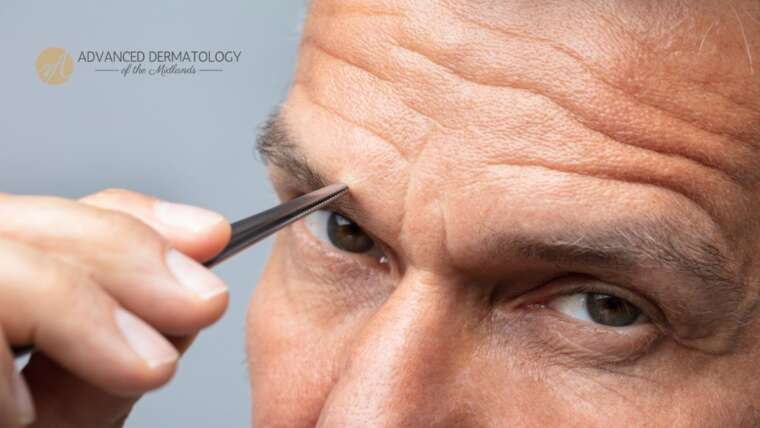Spironolactone (spear-on-oh-lack-tone), an FDA-approved medication for high blood pressure, has gained increased interest for its ability to treat acne in women. Our dermatologists have more than a decade in practice together utilizing this medication to help patients treat acne. For this reason, we would like to discuss more details about the use of spironolactone for acne.
NEWS
In the field of dermatology, filler is a material injected into the skin for a variety of cosmetic reasons. It can help smooth out lines and wrinkles and fill in larger voids/hollows. At Advanced Dermatology of the Midlands, all our dermatology providers have extensive experience and training in the use of facial dermal skin fillers. We love doing these procedures for our patients, and they love their results. In this article, we will walk you through some of the most common areas people get fillers, as well as the difference between a cannula and a traditional needle for skin filler.
The best dermatologists know that all adults should have a total-body skin examination every year. The purpose of this is for early detection and treatment of skin cancers, especially melanoma. Early treatment of these cancers can reduce complications and save lives.
For decades we have known that one of the very best antibiotics at our disposal to treat inflammatory skin conditions, especially acne and rosacea, is minocycline. Minocycline is like all antibiotics in that it kills bacteria. However, more important than this is its anti-inflammatory effect.
It is that time of year again – Nebraska’s cold winter weather has thoroughly set in and is drying out our skin! Skin care regimens are extra important during this time of the year, especially for people with naturally dry, sensitive skin. Dry air outdoors coupled with indoor heat are the leading causes of winter dry skin but don’t fret. Here are some helpful tips about how you can combat dry skin in the wintertime, and what dermatologist-recommended winter skin care products can help your skin stay hydrated.
Wondering if it is safe to see your dermatologist during a pandemic? These are the steps we have taken at Advanced Dermatology of the Midlands to keep patients, staff, and the community safe.
As we enter the wintertime, on the verge of another bout of winter weather, we would like to focus a bit more on itching of the skin. Itching, after all, is most common in the winter. Itching can be localized to certain areas of the skin, for example in the skin over insect bites or bed bug bites. In uncommon cases, it can be widespread, affecting all the skin.
The best dermatologists know that the number one cause of widespread itching all over the body with no rash is dry skin. In most cases of widespread itching all over due to dryness, you may have little or no rash. Keep reading to learn more about itching without a rash, dry skin, and home remedies to treat skin itching.
Unwanted hair on your face or body is a common issue that we see in our clinics at Advanced Dermatology of the Midlands. Unwanted hair growth can run in families. Though women tend to seek care for this problem more frequently, men can be affected by unwanted or excess hair growth as well. This post will address the issue and…
To be human is to have anxiety. Some degree of anxiety is generally lurking in the background getting us out of bed in the morning, motivating us to get stuff done every day. But at times, anxiety can grow and essentially take over our lives. When it comes to dermatology problems, hair loss (alopecia) is one of the primary conditions we encounter that is often intertwined with anxiety.
Have you ever had an itchy rash that is so uncomfortable it can disturb your sleep? Is this rash persistent or does it come and go, with repetitive outbreaks? Does your rash last for days, weeks, or months? If your answer is yes to one or more of those questions, there is a decent chance that you have allergic contact dermatitis. Allergic contact dermatitis is exceedingly common—virtually every person will have at least one episode of this rash during their lifetime. Some of us are affected more severely than others.











